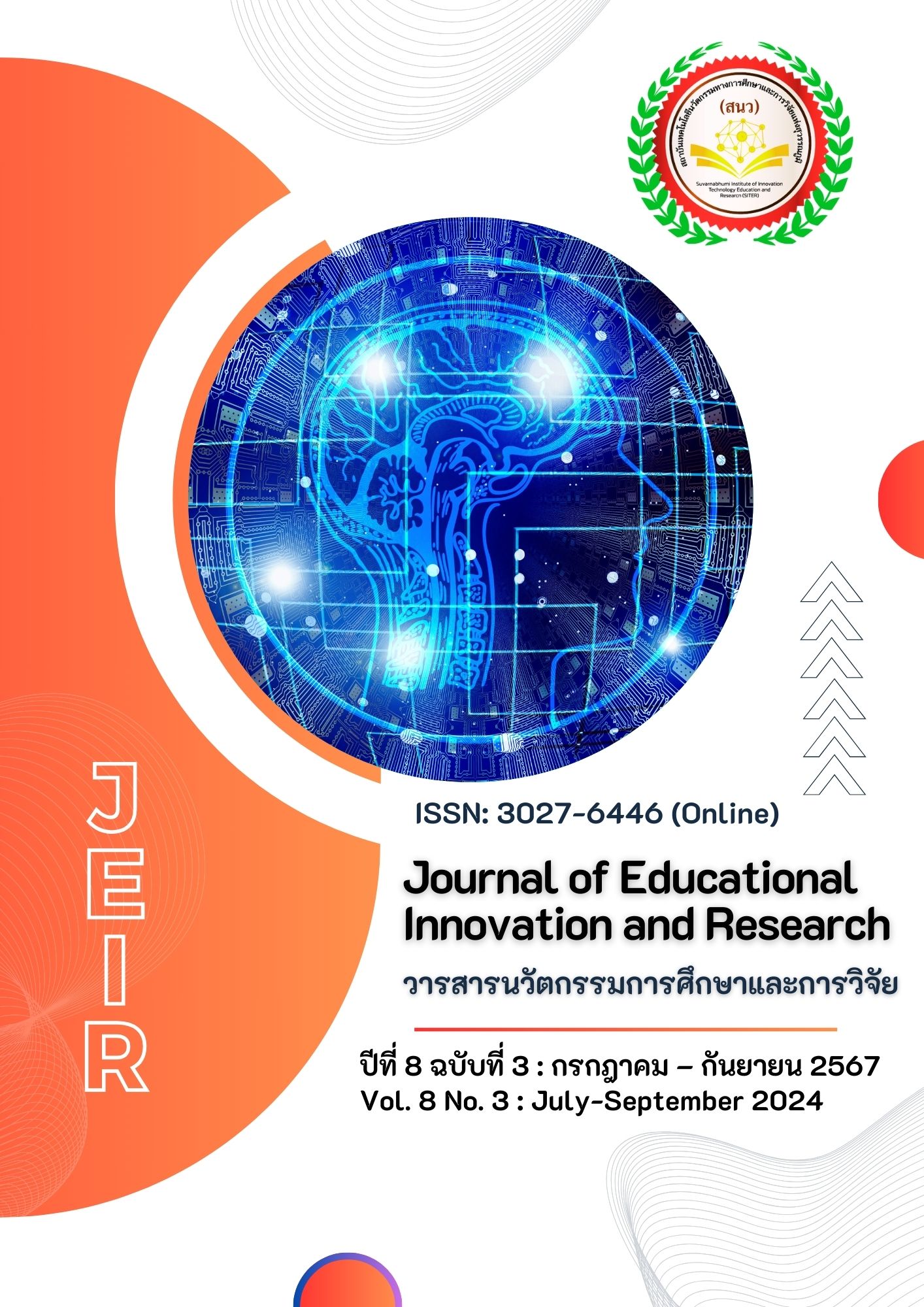The Online training to develop skills of using Zoom, MS-Teams, and Google Meet based on the Connectivism theory for the General public during the COVID-19 pandemic
Main Article Content
บทคัดย่อ
COVID-19 changes all daily routines and forces people to adapt while online technology becomes The New Normal. This study developed an online training course of three popular online video conferences based on connectivism theory for the general public. The aims are; 1) to develop the online training course based on connectivism, 2) to study the skills of using Zoom, MS Teams, and Google Meet, and 3) to study the course’s satisfaction. The researcher applied the ADDIE Model in three steps: 1) a analysis and design, 2) implementation, 3) summary and report. The design of the curriculum took approximately one month, from August to September 2022. There were 35 voluntary samples from 116 participants to answer online questionnaires that had an IOC > 0.5 from three experts. The results show that many elderly educators and workers had never used the online video conference platform until COVID-19 helped them find New Normal. This course can develop all skill levels in three applications, from poor to high. The satisfaction level of the course was high in all aspects.
The knowledge gained in this research is able to be beneficial in improving the use of information and communications technology for all academic educators and the human resources of corporations to be more efficient, especially in this New Normal period.
Article Details

อนุญาตภายใต้เงื่อนไข Creative Commons Attribution-NonCommercial-NoDerivatives 4.0 International License.
เอกสารอ้างอิง
Abdelhak, A., Asmaa, E., Abdelfatteh, H., & Aziz, D. (2017). Improving the Teaching of ICT Engineering using Flipped Learning: a personalized model and a case study. Production, 27(spe). 1-16. https://doi.org/10.1590/0103-6513.227416
Alzahrani, L. & Seth, K. P. (2021). Factors influencing students’ satisfaction with continuous use of learning management systems during the COVID-19 pandemic: An empirical study. Education and Information Technologies, 26(6), 6787–6805. https://doi.org/10.1007/s10639-021-10492-5
Blerta P. & Huseyin U. (2019). Flipped Learning in Engineering Education. TEM Journal, 8(2), 656–661. https://doi.org/10.18421/TEM82-46
Boitshwarelo, B. (2011). Proposing an Integrated Research Framework for connectivism: Utilizing Theoretical Synergies. The International review of research in Open and Distance Learning,12(3), 161-173.
Bunnapasut, P. (2015). Development of Electronic Learning 8E Based on Connectivism Model for Virtual University. Parichart Jorunal. Thaksin University, 28(3), 64-81.
Chaiwat J. & Pallop P. (2015). Project-Based Learning Using Discussion and Lesson-Learned Methods via Social Media Model for Enhancing Problem Solving Skills. International Education Studies, 8(6). https://doi.org/10.5539/ies.v8n6p24
Dewey, J. (1916). Democracy and Education. New York: Macmillan.
Dixon-Krauss, L. (1996). Vygotsky in the classroom. Mediated literacy instruction and assessment. White Plains, NY: Longman Publishers.
Ganesan, R., Edmonds, G. S., & Spector, J. M. (2002). The changing nature of Instructional design for networked learning. in Networked learning: Perspectives and issue (pp. 93-94) Springer-Verlag London.
Glassman, M. (2001). Dewey and Vygotsky: Society, Experience, and Inquiry in Educational Practice. American Educational Research Association, 30(4), 3-14.
Hughes, J. (2004). Technology learning principles for preservice and in-service teacher education. Contemporary Issues in Technology and Teacher Education, 4(3), 345-363.
Hundhikorn, B. (2012). The development of new student characteristics to support education reform in the second decade by integrating ICT in project management. Office of the Education Council, Ministry of Education.
Jirasatjanukul K., & Jeerungsuwan, N. (2018). The Design of an Instructional Model Based on Connectivism and Constructivism to Create Innovation in Real World Experience. Journal of International Education Studies, 11(3), 1-12. https://doi.org/10.5539/ies.v11n3p12
Laohajaratsang, T. (n.d.). 21st Century Skills for CMU Faculty Development. https://anyflip.com/wygyx/ gdsh/basic/51-69
Leekijwattana, P. (2015). Educational Research Methodology (10th Ed.). Mein Service Supply.
Phumpuang, K. (2015). Creating learning activities with connectivism through social media. Liberal Arts Review, 10(19), 1-13.
PostToday.(2020, May 11).New Normal 10 trends in the lifestyle for Thai people. https://www.posttoday.com/life/work-life-balance/623097
Sanook. (2020, May 13). What is New Normal? Why does our life change after covid-19?. https://www.sanook.com/health/22569/
Satien J. & Pallop P. (2018). The Development of Problem-Based Learning and Concept Mapping Using a Block-Based Programming Model to Enhance the Programming Competency of Undergraduate Students in Computer Science. TEM Journal, 7(4), 708–716.
Siemens, G. (2005). Connectivism: A learning theory for the digital age. International of Instructional Technology and Distance Learning, 2(1), 3-10.
Simmatun, P. (2009). The Developed Collaborative Learning instructional model via computer network based on constructivist theory for undergraduate students [Doctoral dissertation, King Mongkut’s University of Technology North Bangkok].
Somabud, A. (2013). Constructivist Theory. https://teacherweekly.wordpress.com/2013/09/25/ constructivist-theory/
Sriwisathiyakun, K. (2015, June 26). Constructivist Learning Model by Collaborative Learning Objects on Social Network for Knowledge Construction. The 6th Hatyai National Conference. 96-107.
ThaiPBS. (2020, May 6). Recognize: new normal, the royal institute. https://news.thaipbs.or.th/content/ 292126
Verenikina, I. (2003). Understanding Scaffolding and the ZPD in Educational Research.Proceedings of the International Education Research Conference (AARE - NZARE), 30 November – 3 December 2003, Auckland, New Zealand.
UIH. (n.d.) Taking lessons from Work from Home and problems that organizations must solve. https://www.uih.co.th/th/knowledge/work-from-home


